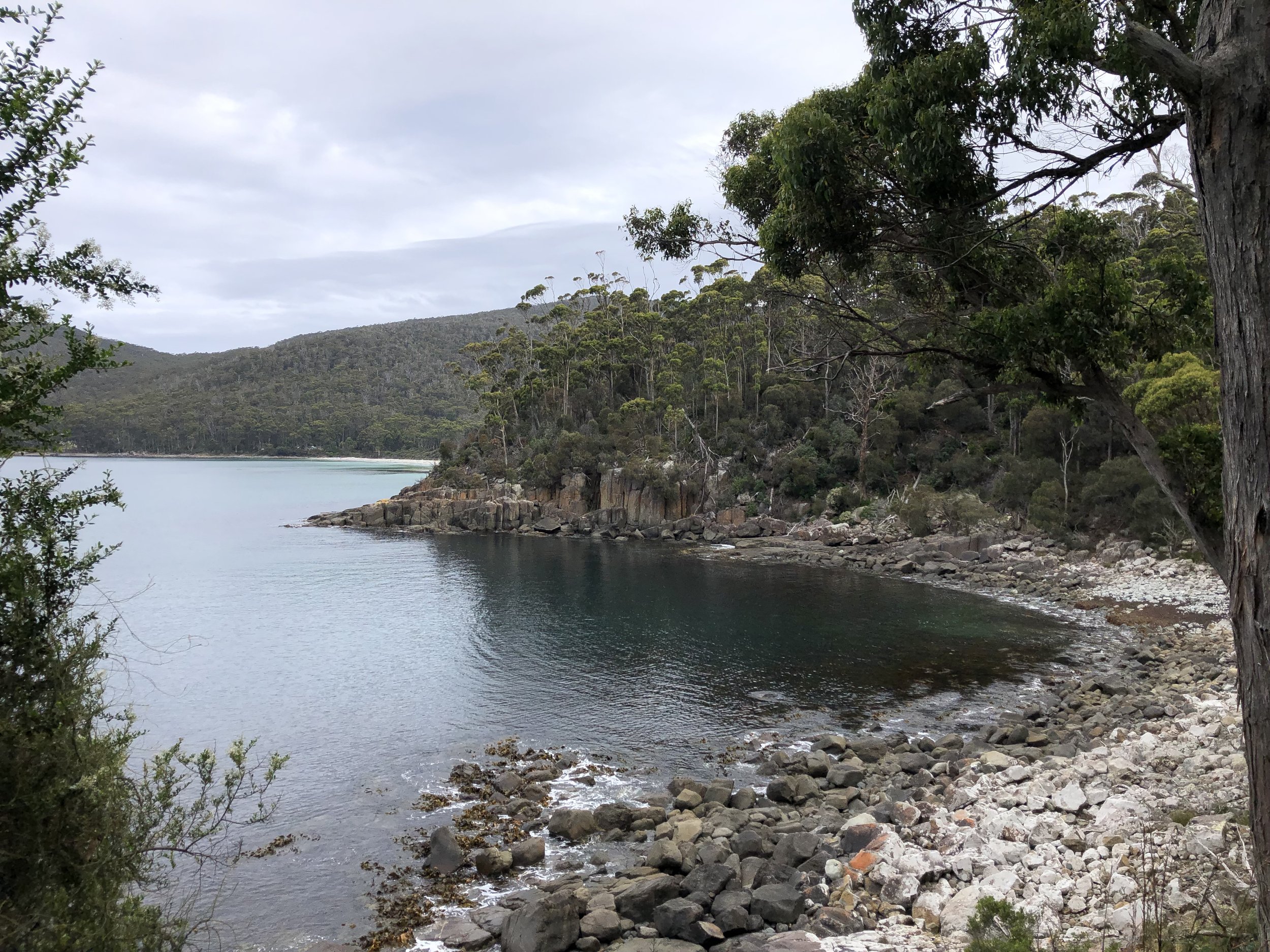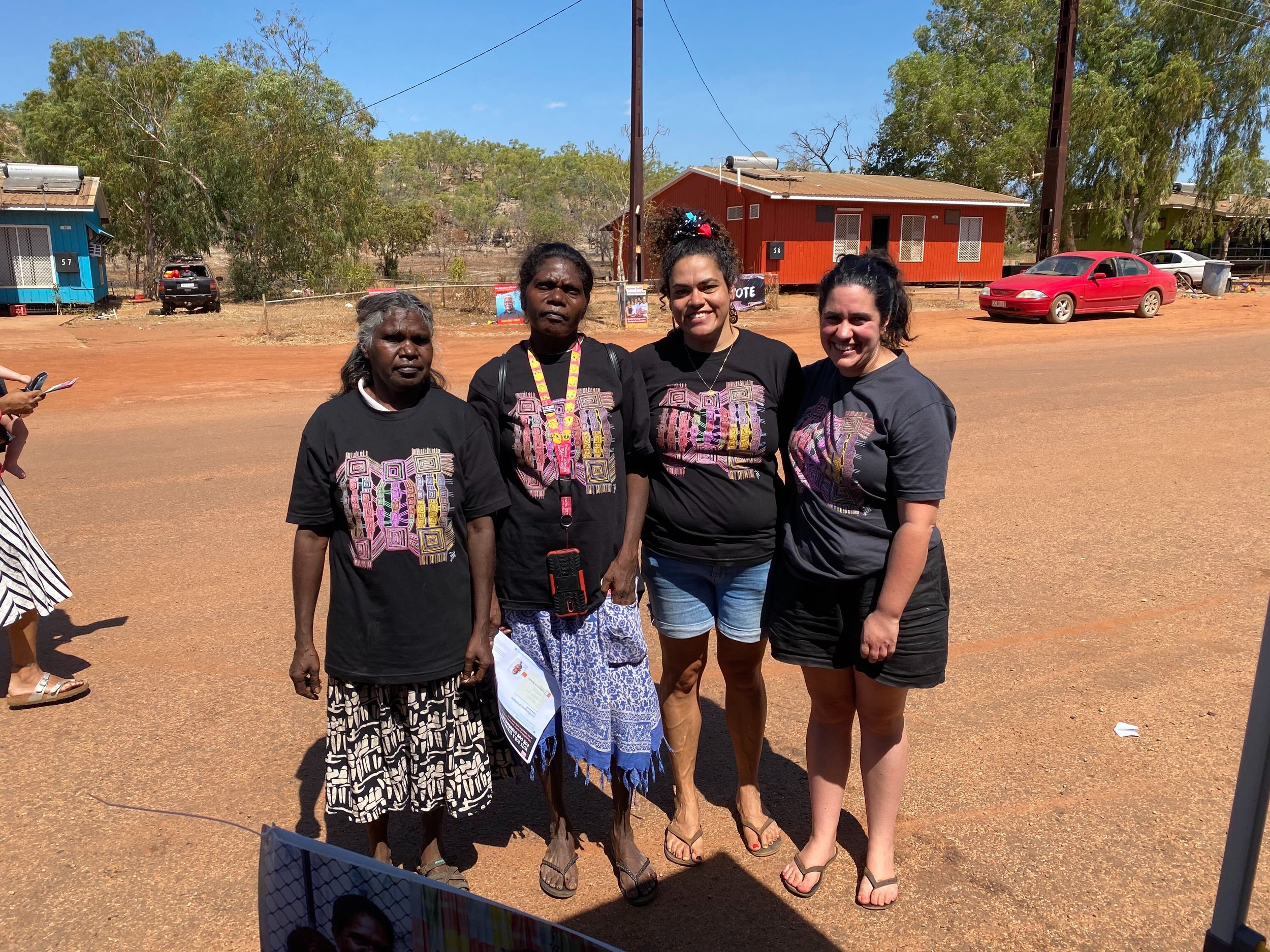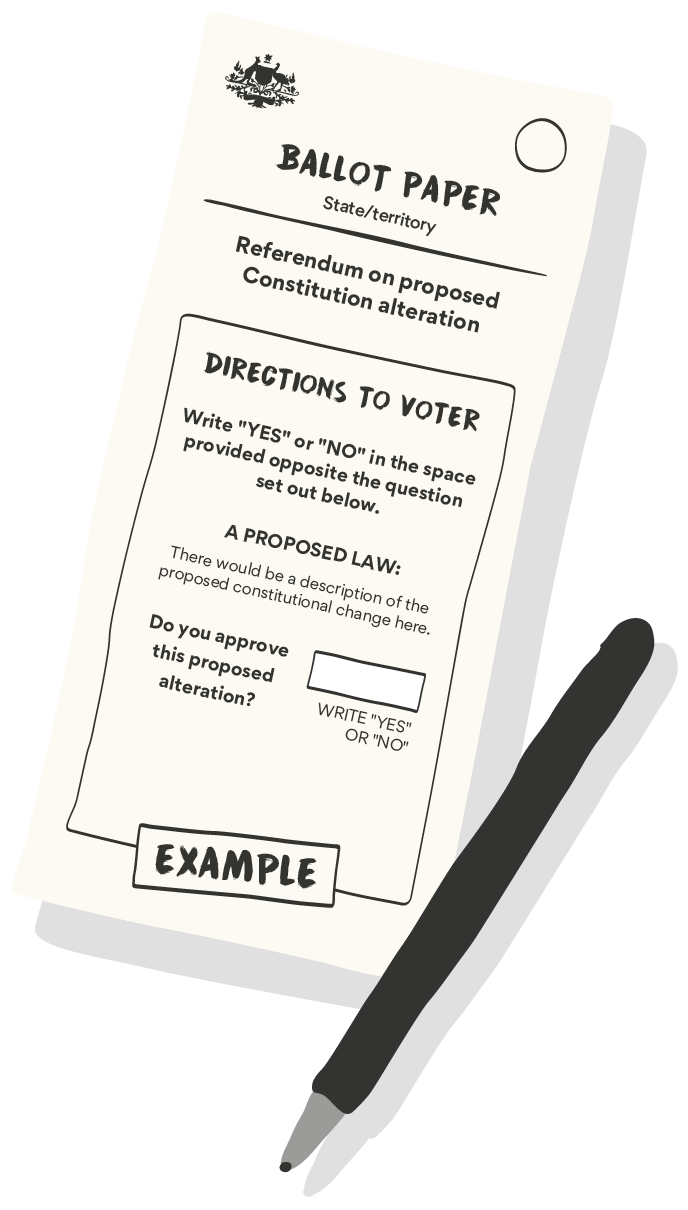
Glossary
Let’s start off with some definitions
In the lead up to the referendum there are lots of words and terminology being used, so we’ve pulled together some easy definitions.
We provide these for your context, however - in conversations and communications, we recommend starting with shared values rather than formal terminology, so people don’t need prior knowledge to engage.
That’s why in our messaging guide, you will notice that we rarely mention the Uluru Statement from the Heart or the Voice to Parliament. Instead, we focus on shared values, vision for the future and how we can use this moment to build a mandate to get us there.
Transformative change
To us, transformative change means treaties, truth-telling, land rights and land back, decision-making and veto rights, First Nations-led justice and fully resourced Aboriginal community controlled organisations. It’s the change that realises the aspirations our communities have been fighting for for decades; the change that’ll make a real difference to the lives of everyday people; a change that’s enduring and guarantees a better future for the generations to come.
Deficit language
A deficit is a deficiency, failure or disadvantage. When deficit language is used in reference to First Nations communities, it reinforces the idea that our communities are vulnerable, dysfunctional and suggests that we are the problem, taking responsibility away from governments and those causing harm. This is a deliberate tool that is used against us, and we need to avoid falling into their trap by sharing our truth in a way that’s grounded in our strength, and motivates action.
‘Write yes’
As described on the Australian Electoral Commision website, you will receive a ballot paper with the proposed alteration to the Constitution, followed by a question asking if you approve. On the ballot paper, you need to indicate your vote by clearly writing the word Yes if you approve of the proposed alteration, or the word No if you do not approve.
Throughout this report, we use the term ‘Write Yes’ (rather than ‘Vote Yes’) as a way to familiarise readers with how voting will work on the day. We also say ‘Write Yes’ rather than ‘Vote for the Voice’, because ‘Yes’ means so much more: ‘Yes’ to transformative change, ‘Yes’ to treaties, ‘Yes’ to truth-telling, ‘Yes’ to ending black deaths in custody and ‘Yes’ to justice. That’s our end goal, with Voice just one step along the way.
Progressive Yes campaign
Momentum is on our side – the majority of people equally support all the big changes our communities are calling for, from treaties, to truth-telling and representation. The progressive Yes campaign aims to win a resounding Yes and supercharge these campaigns for justice. When the majority of people vote with us, we will build the mandate needed for transformative policy change beyond the referendum.

First Nations grassroots No / Progressive no campaign
First Nations grassroots movements have always led the charge for transformative change. Across all social change movements, the right of refusal is a powerful strategy to push for more ambition than what’s currently on the table. The grassroots No / progressive No campaign is demanding more ambitious change, and raising important questions and concerns about the upcoming referendum.
Racist no campaign
The racist No campaign, led and funded by right-wing agendas, is using racist rhetoric that intentionally feeds the stigma of Aboriginal ‘dysfunction’, validating paternalistic policies and deficit discourse that promotes assimilation and undermines what our old people have been fighting for to regain control over our own lives. The racist No campaign seeks to spread fear and division for their own political gain.
Uluru statement from the heart
The Uluru Statement from the Heart was issued to the Australian public in 2017, after 250 Aboriginal and Torres Strait Islander delegates came together for the First Nations National Constitutional Convention. This gathering was convened by the bipartisan-appointed Referendum Council and was held after the Council had travelled around the country and met with over 1,200 First Nations people as a part of the regional dialogues.
The statement has been described as an invitation to “walk with us in a movement for a better future” and “calls for a constitutionally enshrined First Nations Voice to Parliament, and for Makarrata – a coming together after a struggle – through a process of treaty-making and truth-telling.”
Voice to parliament
As described on the Australian Government website, the Voice to Parliament would be “an independent and permanent advisory body. It would give advice to the Australian Parliament and Government on matters that affect the lives of Aboriginal and Torres Strait Islander peoples”. The Prime Minister has recently released the principles of the Aboriginal and Torres Strait Islander Voice, developed by the First Nations Referendum Working Group and endorsed by the Australian Government. You can read the detailed design principles here.


